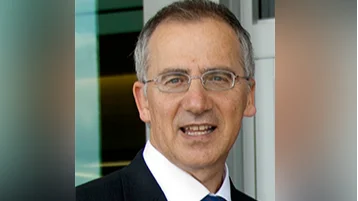
Researchers at UTHealth Houston have developed a new technology that can decode speech from brain signals across different patients, potentially making communication devices more accessible for people who have lost the ability to speak due to conditions such as stroke or brain injury.
The study, published in Nature Communications, addresses previous limitations of brain-computer interfaces. Traditionally, these systems required each patient to spend significant time training the device and needed recordings from specific intact regions of the brain. This posed challenges for patients with aphasia or those whose speech centers were damaged.
Brain-computer interfaces function by interpreting a person's brain activity during attempted speech and converting it into words displayed on a screen or synthesized as voice. The research team, led by Nitin Tandon, MD, professor of neurosurgery at McGovern Medical School at UTHealth Houston and director of the Texas Institute for Restorative Neurotechnologies at UTHealth Houston, used cross-subject transfer learning to improve efficiency. This approach allows a model trained on one individual's data to adapt quickly to another's without starting from scratch.
In their study, researchers recorded brain activity from 25 epilepsy patients using depth electrodes while they spoke tongue twisters. The interface translated this activity into phonemes—the smallest units of sound in language.
“With it being a complex tongue twister task, your speech system is at a heightened alertness to minimize errors,” said Tandon. “This means there is maximum engagement of the speech system and a lot of neural activity that we can tap into to decode what they are saying or trying to say.”
The team built a shared database of brain signals which enabled the interface to be fine-tuned with only minimal data from each new user. According to their findings, even when individuals had limited electrode coverage or brief recording sessions, this shared model decoded speech more accurately than models trained solely on individual data.
Tandon noted that leveraging collective data could help future devices work reliably for new patients who have little available data or damaged language areas: “This allows us to create this library that you can read from when you have somebody with a brain injury to try to replicate normal language,” he said. “This is a really foundational step in being able to help people with aphasia.”
Aditya Singh, MD, PhD candidate at The University of Texas MD Anderson Cancer Center UTHealth Houston Graduate School of Biomedical Sciences was lead author on the study. Other contributors included Tessy Thomas (Johnson & Johnson MedTech), Jinlong Li (Rice University), Greg Hickok (University of California, Irvine), and Xaq Pitkow (Baylor College of Medicine).
UTHealth Houston has been active in neuroscience research since 2008.